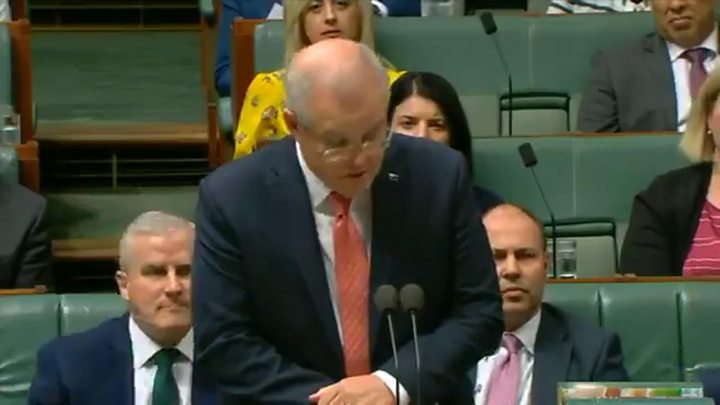That's because in the UK, when a prime minister quits -- as Theresa May did over Brexit -- there isn't necessarily a general election. In the country's parliamentary system, the PM is typically the head of the largest party in parliament. If there's a personnel change at the top of the ruling party, the new party leader pretty much automatically gets the keys to 10 Downing Street.
In this case, the people charged with picking between
flamboyant frontunner Boris Johnson, or safe-pair-of-hands challenger Jeremy Hunt, are the aforementioned 160,000 members of the Conservative Party -- and they start receiving their ballot papers this weekend.
Conservatives have a reputation for being out of touch and monied. "The classic perception of posh old men in red trousers hankering for the good old days misses the point. You have very different make-ups of membership across England, Wales Scotland and Northern Ireland," Lauren McEvatt, a Conservative party member and former Conservative special advisor, explains. While those people do exist, there are also "a lot of low-middle income earners who have an aspirational approach to life and are not attracted to the big-state ideas of the left."
However, while they might be a diverse group in terms of their backgrounds and approach, they are far from representative of the UK in 2019. "They are predominately white, middle-class and comfortably off," says Tim Bale, professor of politics at Queen Mary, University of London and co-author of the upcoming book
"Footsoldiers: Political Party Membership in the 21st Century.""They are also 97% white British, whereas about 15% of people in the country are from an ethnic minority background. They are also mostly men," Bale says.
Their political views are also at odds with the nation at large -- and even with the Conservative lawmakers sitting in the House of Commons. "The are pretty traditionalist," Bale explains. "If you look at their attitudes on immigration, justice and education, they are socially very right-wing." Contrast this with Conservative members of parliament, who largely voted in favor of legalizing gay marriage and campaigned against Brexit, and you begin to see the tightrope that Johnson and Hunt must walk in order to win over their party but not alienate 98.8% of the country.
Of course, the most important issue in the UK right now is Brexit. And it's been a matter dividing the Conservatives for decades, with the party split between ideological europhiles and euroskeptics. The fact that a Conservative government has failed to deliver Brexit is seen by party members as at best a betrayal, at worst a public humiliation.
Since 2016, the membership's view on Brexit has shifted significantly. "The party has gone from two-thirds of members holding off deciding how they would vote in the Brexit referendum, to two thirds saying they'd be happy with no deal," according to research by Tim Bale.
Lauren McEvatt believes that the shift began with David Cameron misunderstanding why so many of his own wanted to leave the EU. "It wasn't just about immigration; it was also about a perception that unelected gray men in Brussels were interfering in everyday life in the UK, with ludicrous regulations on things like light bulbs and vacuum cleaners. So, when he came back with an offer from Brussels that didn't appear to address those things, Conservative members felt like he had failed."
This has affected the contest to replace May next month. Stuart Graham, a long-standing party member, says May's resignation has "given the majority of members of the party a new lease of life and a new sense of purpose." This, combined with its new hardening on Brexit, has forced both leadership candidates to publicly say they would be comfortable leaving the EU without a deal.
Winning over the members might be useful for now, but any new prime minister will likely have to pivot when they actually take office.
While both Hunt and Johnson claim that they plan to reopen Theresa May's tortuously negotiated Brexit deal, the EU has said that's simply not an option. And while both say they will happily pursue a no-deal departure, they have the small matter of the UK parliament to overcome. Parliament cannot formally prevent a no-deal Brexit, but it can very strongly tell the government that to do so would be catastrophic. And should a PM press ahead in spite of the declared will of parliament, then lawmakers have the power to vote down the government, a scenario that might well trigger a general election.
This is where things get spicy. The wider public (remember them?) will have taken note of everything said by both candidates during the Conservative leadership race. And public opinion is currently quite a bit more diverse than it is within the Conservative party. A succession of opinion polls show the Conservatives taking large hits from parties on both extremes of the Brexit spectrum, including parties that want to abandon the project altogether.
And before you say, "yes, but polls have had a habit of being wrong of late," look at last month's EU elections, where the Conservatives and opposition Labour party both finished behind the pro-no deal Brexit party and the pro-scrapping Brexit altogether Liberal Democrats.
So, while 0.2% of the population might well install their Brexit hero Boris Johnson next month (or Jeremy Hunt, who has an equally complicated Brexit stance), the ultimate victor might be drinking from a poisoned chalice. And, if they get this wrong, they could end up being the shortest serving prime minister in history.
https://edition.cnn.com/2019/07/05/uk/conservative-party-leadership-next-prime-minister-intl-gbr/index.html





